Startup Challenges Faced by Manufacturing Startups in Morocco
)
Morocco's manufacturing sector has been rapidly evolving, creating new opportunities for entrepreneurs looking to establish industrial ventures. From automotive components to textiles, food processing, and electronics, the potential for growth is substantial. However, manufacturing startups in Morocco face a unique set of startup challenges that differ significantly from those encountered by digital or service-based businesses. These challenges include capital-intensive operations, complex regulatory environments, and infrastructure limitations that can severely impact growth trajectories and sustainability. Understanding these obstacles is essential for founders, investors, and policymakers who aim to strengthen Morocco's industrial ecosystem and support manufacturing innovation.
Key Startup Challenges in Morocco's Manufacturing Sector
Limited access to manufacturing-specific funding options
Manufacturing startups in Morocco encounter significant funding obstacles that can hinder their growth and development. Unlike tech startups that may launch with minimal capital, manufacturing ventures typically require substantial investment for equipment, facilities, raw materials, and skilled personnel before generating revenue.
Many Moroccan entrepreneurs struggle to secure manufacturing-specific funding from local financial institutions, which often view industrial startups as higher risk due to longer payback periods and complex operational requirements. Traditional banks typically require extensive collateral and proven business history, which new manufacturing founders rarely possess.
Industry experts note that if regulations do not change to favor foreign investors, local startups may continue establishing their holdings outside Morocco to increase their chances of raising money from international players [Morocco World News]. This creates a challenging situation where promising manufacturing ventures must consider relocating their legal entities abroad simply to access needed capital.
While government initiatives like Maroc PME offer some support, these programs often have limited funds and strict eligibility requirements that don't address the specific needs of manufacturing startups. Venture capital and angel investment networks in Morocco remain primarily focused on digital and service-based startups rather than capital-intensive manufacturing ventures.
Gaps in supply chain infrastructure and local vendor support
Manufacturing startups in Morocco face substantial challenges in building reliable supply chains, with approximately 40% of manufacturing firms reporting difficulties due to supply chain disruptions, particularly regarding imported raw materials [7News]. This statistic highlights a fundamental issue for new industrial ventures: the underdeveloped domestic supplier network.
Despite Morocco's growing industrial base, multinational companies dominate high-value segments like engine assembly and electronic systems, while Moroccan firms typically handle lower-value tasks such as wiring and seating. This arrangement indicates limited engagement of domestic suppliers in more sophisticated production processes.
Manufacturing startups often face several supply chain obstacles:
-
Difficulty sourcing consistent quality raw materials locally
-
Limited number of specialized component manufacturers
-
Higher costs and longer lead times for imported materials
-
Lack of storage and warehousing facilities in some industrial zones
Navigating licensing, customs, and regulatory bottlenecks
Morocco's regulatory environment presents significant hurdles for manufacturing startups. New industrial ventures must navigate multiple layers of bureaucracy spanning various ministries and agencies, each with its own procedures and timelines. This fragmented approval process often leads to delays and uncertainty for founders.
Despite Morocco's export structure remaining highly concentrated in low-complexity products, there's significant untapped potential for diversification. Research indicates that products identified as high-potential currently account for only 2% of Morocco's exports, compared to 10% of global exports [IMIST].
Customs procedures represent another critical challenge. Despite Morocco's attempts to streamline import/export processes, manufacturing startups report difficulties with:
-
Inconsistent interpretation of customs regulations
-
Unpredictable clearance times for equipment and raw materials
-
Complex documentation requirements
-
Multiple inspections from different authorities
For manufacturing startups with international ambitions, navigating export regulations adds another layer of complexity. While Morocco has trade agreements with numerous countries, each market has specific compliance requirements that new manufacturers must meet.
Common Startup Scaling Problems for Manufacturing Ventures
Inability to maintain quality while scaling production
Manufacturing startups in Morocco frequently encounter quality control challenges when transitioning from small-batch production to larger-scale operations. This scaling phase represents a critical juncture where production processes that functioned adequately at lower volumes often break down under increased demand.
The root causes of quality issues during scaling typically include:
-
Inadequate standardization of manufacturing processes
-
Insufficient quality management systems
-
Overreliance on manual inspection rather than statistical process control
-
Limited access to testing equipment and laboratories
-
Difficulty maintaining consistent raw material quality from multiple suppliers
For startups in sectors like automotive components or electronics, where international quality standards like ISO 9001 are essentially mandatory, these challenges become even more pronounced. The cost of implementing comprehensive quality management systems can represent a significant portion of operational expenses for early-stage manufacturers.
Additionally, the talent shortage in quality assurance roles compounds these difficulties. While Morocco produces engineering graduates, professionals with specialized experience in manufacturing quality systems remain scarce.
Mismatch between automation investment and workforce skills
Moroccan manufacturing startups face a complex balancing act between automation and workforce development. On one side, competitive pressure from established manufacturers pushes startups to consider automation to improve efficiency and quality. On the other hand, implementing automation requires substantial upfront investment that many startups cannot afford.
This creates a common scenario where manufacturing startups initially rely on labor-intensive processes while planning future automation. However, as they begin to introduce automated equipment, they often discover a significant skills gap in their workforce. The technical capabilities required to operate, maintain, and optimize modern manufacturing equipment frequently exceed the training of available workers.
Manufacturing startups that successfully navigate this challenge typically adopt hybrid approaches that:
-
Identify critical processes where automation delivers immediate benefits
-
Invest in targeted employee training alongside equipment purchases
-
Develop relationships with technical schools to access new talent
-
Implement technologies incrementally to allow workforce adaptation
Logistical hurdles in reaching broader Moroccan markets
Manufacturing startups in Morocco face significant distribution challenges when attempting to expand beyond their initial local markets. While Morocco has invested substantially in transportation infrastructure, logistical hurdles persist, especially for startups targeting nationwide distribution.
The concentration of industrial activity in specific regions like Casablanca, Tangier, and Rabat creates imbalanced distribution networks. Manufacturing startups located in these hubs benefit from established Future Mobility services but face intense competition. Conversely, startups in other regions may have lower operating costs but struggle with reliable transportation options for both raw materials and finished products.
For manufacturing startups selling to businesses (B2B), challenges include:
-
Long payment cycles from larger customers affecting cash flow
-
Difficulty establishing distribution partnerships without proven track records
-
Inconsistent demand forecasting leading to inventory management problems
-
Limited warehousing options in certain regions
Conclusion
The manufacturing startup ecosystem in Morocco presents both promising opportunities and formidable challenges. While the country has made significant strides in developing its industrial base, new manufacturing ventures continue to face substantial hurdles that contribute to high failure rates. The combination of limited specialized funding, supply chain gaps, regulatory complexities, scaling difficulties, and market development challenges creates a demanding environment for founders.
However, entrepreneurs who thoroughly understand these obstacles can develop strategies to navigate them successfully. By securing adequate capital reserves, building flexible supply chains, carefully timing market entry, and systematically addressing quality and workforce issues, manufacturing startups can improve their chances of long-term success.
For Morocco to fully realize its manufacturing potential, continued development of the supporting ecosystem is essential. This includes more specialized funding mechanisms for industrial ventures, streamlined regulatory processes, improved technical education, and stronger connections between startups and established manufacturers. With these improvements and resilient entrepreneurs who learn from common failure patterns, Morocco's manufacturing startup sector can play an increasingly important role in the country's economic development and diversification.
FAQs
Ques: What makes manufacturing startups challenging in Morocco?
Ans: They demand heavy upfront capital, face complex permits, rely on costly imports due to weak supplier networks, and struggle with a shortage of skilled technical talent.
Ques: How can startups avoid scaling problems?
Ans: Adopt phased growth, invest in quality systems early, diversify suppliers, train staff alongside automation, and build strong inventory management practices.
Ques: Are funding issues the main reason for failure?
Ans: Funding is a major challenge but often stems from deeper issues like regulatory delays, market misfit, and inefficiencies. Limited industrial-focused investment worsens the problem.
Ques: What local regulations affect startups?
Ans: They must secure permits, industrial licenses, and environmental approvals, comply with customs, labour, and tax rules, and meet strict product-specific safety and labelling standards.
Ans: By mapping suppliers, building redundancy, pooling purchasing power, supporting local vendors, and using customs expertise to ease import reliance.


